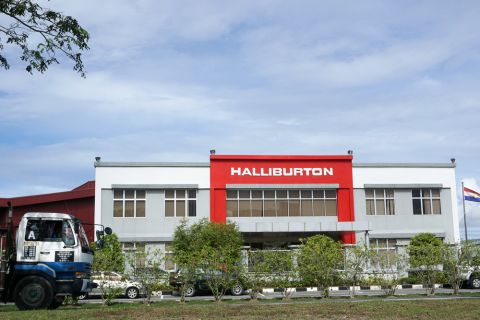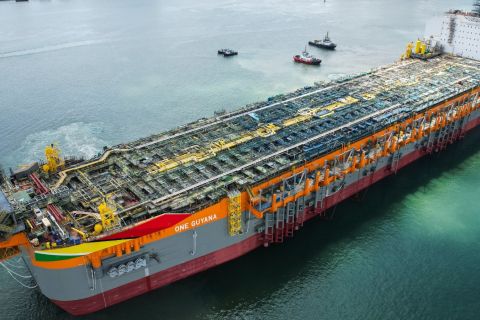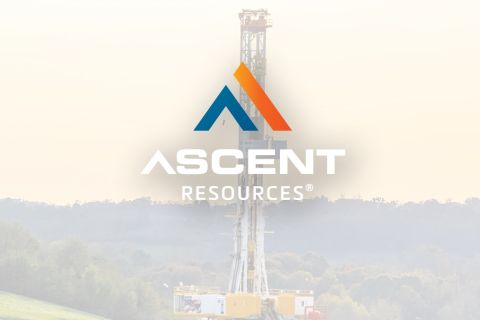With the Appalachian Basin’s Marcellus shale-gas play getting so much attention from oil and gas producers, it’s easy to forget tried-and-true (and reemerging) plays elsewhere. Case in point: the Texas Panhandle area, where oil and gas reservoirs are far from exhausted.
There, the Pennsylvanian-aged Granite Wash tight-sands play is in the midst of a rejuvenation. At press time, the play's wells were producing about 450 million cubic feet of rich gas and some 10,088 barrels of oil per day.
The weathering of granite over time gave the tight-sands play its name. Geographically extensive, the play stretches throughout the northern Texas Panhandle and western Oklahoma. Gas is found in multiple zones between 9,500 and 13,000 feet with a deposition thickness of from 1,500 to 3,500 feet throughout Beckham and Greer counties in Oklahoma and Gray, Wheeler, Roberts and Hemphill counties in Texas.
At current field prices, Granite Wash production yields good rates of return, while the high liquids content of its gas significantly enhances economics. Also, high initial-production rates front-load cash flow, providing a strongly positive bias to rates of return and making it more attractive than many other shale plays.

The Cashion System, in Oklahoma, Logan, Canadian and Kingfisher counties, Oklahoma, includes some 145 miles of pipeline and compression, processing and gathering services for 130 wells.
First-year decline rates are about 50% to 60%, not bad compared to the 80% decline rate experienced in some plays. Drilling and completion costs range from $5.5- to $6.5 million, which, given the anticipated cash-flow profile of the wells, is encouraging.
More major and mid-major E&Ps are expected to follow the Granite Wash’s pioneering independents into the play once gathering, treatment and processing services grow and local systems are connected to high-pressure transmission lines.
Overall, the tight-sands play has emerged as a strong and credible midstream infrastructure opportunity. The play has a lot of potential, and midstream company Superior Pipeline Co. LLC, based in Tulsa, plans to play a leading role.
Superior was formed in 1996 by Bob Parks and Unit Corp., both based in Tulsa, along with a private company based in Dallas. In 2004, Unit Corp. acquired 100% of Superior’s outstanding stock. Since then, the company has steadily grown, and now operates nine processing plants, three gas-treatment plants and 34 active gathering systems with some 850 miles of pipe. Superior operates in Oklahoma, Texas, Kansas, Pennsylvania and West Virginia.

"We have grown more dramatically since 2004, especially with our holdings in the granite wash. Today, it is our largest capital investment," Bob Parks, founder and president, Superior Pipeline Co. LLC.
“When we began, we grew steadily, but not dramatically, by building small gathering systems and gas-processing plants,” explains Bob Parks, founder and president. “We have grown more dramatically since 2004, especially with our holdings in the Granite Wash. Today, it is our largest capital investment.”
Fast growth
About eight years ago, Superior began with a small Granite Wash gathering system in Hemphill County, Texas. The gathering system carried some 10 million cubic feet per day of gas in 2003. At the time, the gas was delivered to an Enbridge Inc. gas-processing plant.
“We bought the system because we liked the Texas Panhandle area. It’s a good place to have assets,” says Parks. “Since then, the Granite Wash has taken off like a rocket. Over the past three or four years, horizontal drilling activity has dramatically increased. The gas is rich, with six gallons per thousand cubic feet gas to liquids content. It has to be processed, and it is valuable to process it.”
Soon after moving into the play, Superior built or acquired some 130 miles of pipe running though Hemphill and Roberts counties and increased its holdings to 50 million cubic feet per day of processing capacity at its Hemphill plant just south of the town of Canadian, Texas.
At press time, Superior Pipeline was in the process of starting up an additional 50-million-cubic-feet-per-day processing unit at its Hemphill facility, boosting capacity to 100 million cubic feet per day. Before year-end 2011, the company expects to have producer commitments for its 100 million cubic feet per day of processing capacity in the play.
“We are continuing to lay pipe in the Granite Wash area,” says vice president Bill Ward. “Our affiliate company, Unit Petroleum, is very active out in the Granite Wash, and we gather and process their gas. Also, we have a very experienced workforce in the area. Our people are diligent operators of the system and they have good working relationships with the local area residents. That makes it a favorable area in which to work.”
Although Unit Petroleum (a subsidiary of Unit Corp.) is a significant customer of Superior, it is by no means the only customer, says Ward. “We have a business relationship with, and are receiving gas in some quantity from, virtually every active producer in Hemphill and Roberts counties, which is about 12 to 15 producers.” After processing, the natural gas liquids (NGLs) go to either Conway or Mont Belvieu hubs via pipelines running north and south from the play.
For most of its history, Superior has grown organically. It prefers greenfield projects as opposed to large, ready-to-roll acquisitions.
“Some of our assets have been acquired, but they were very small assets at the time,” explains Parks. “We have grown the assets as a result of extensive capital-expansion projects. We are still on track to grow by greenfield-construction projects and organic growth, but we won’t rule out acquisitions.”
Nonetheless, it has not been the company’s style to do the big-dollar acquisition—a fact that distinguishes the company from master limited partnerships (MLPs) or private-equity-backed companies.
Says Parks, “In this day and age, a lot of the larger gathering and processing companies, whether they are MLPs or not, choose to do a $300-million acquisition to grow. Our style has been to build assets, providing new services to the producers in a local area as a result.”

"A local exploration company might think the costs are outrageous, but compared to the South Texas and Haynesville, drilling in this area is still economic," Bill Ward, vice president, Superior Pipeline Co. LLC.
NGLs market
“The nationwide NGL market is very healthy right now,” says Parks. “As we all know, NGL prices tend to track crude prices. It is reasonable to assume everyone who is in a liquids play right now is doing well, and the Granite Wash is one of the most attractive plays for liquid recoveries.”
In fact, various industry experts believe that the drilling economics in the Granite Wash are the best anywhere in the country, even better than in the Eagle Ford or Marcellus shale plays. It naturally follows that the area is attractive to processors. Producers chasing rich gas and oil can find both in the Granite Wash.
“The drilling costs have skyrocketed here, like in the Haynesville,” admits Ward. “But it is still feasible to drill these wells. A local exploration company might think the costs are outrageous, but compared to South Texas and the Haynesville, drilling in this area is still economic.
“When we begin looking for opportunities, we look first at commodity prices, because if NGL prices remain high, drilling efforts will continue. In rich-gas areas such as the Granite Wash, where upstream operators plan to acquire new acreage and drill new wells, Superior sees the opportunity and likelihood for consolidation of pipe and processing plants. It continues to look for opportunities to process more gas and deliver liquids into Oneok and Enterprise Products Partners systems.
“We might find some future opportunities in the Granite Wash where infrastructure is still needed,” continues Ward. “The question is: how far is the Granite Wash going to extend?”
So far, Superior’s presence in Hemphill and Roberts counties has given the midstream company a favorable base of operations from which to expand.
Current challenges
As in any play, Granite Wash midstream development is not without its challenges, such as right-of-way and land issues. Yet, developing solid relationships goes a long way toward smoothing out the rough edges, says Ward. “We work with some very sophisticated landowners in this area.”
Another challenge is the take-away capacity for liquids. The good news—the market for liquids is quite healthy in the area. The downside? “We really have to stay ahead of the curve to make sure we provide adequate take-away,” says Parks. “There has to be adequate capacity to get the liquids to the Conway or Mount Belvieu hubs.”
The liquids take-away challenge is fairly well known in the play, according to consulting firms covering developments in the Granite Wash. It’s an issue from Washita County in Oklahoma to Roberts County, Texas, an area covering some 150 miles in a northwest diagonal. In the near term, there is potential for more gas and liquids than current take-away capacity can handle.
“This is an issue that all of us in the industry are scratching our heads over,” says Parks. “Even if we build a plant to recover the liquids, we have to have some place to send them.”
The play has a varied mix of producers, from small companies to majors, some of which operate their own gathering assets. Yet, most of them don’t want to be in the gathering or processing business, says Ward. “They just want to make sure they get the gas and liquids to market. We have a wide range of customers we can do business with, and we see that as an opportunity.”
New frontiers
When it comes to contracts with its clients, Superior is open to old standbys as well as new ways of structuring commitments.
“Our contracts in the Granite Wash are typically either fee-based or percentage-of-proceeds, or a combination of the two in a single contract,” explains Parks. “We can be flexible with our clients’ contracts. That’s one of the competitive advantages we have as a relatively small company. We are able to tailor a deal around whatever structure a producer desires. We have a mixture of contracts out in the Panhandle.”
Elsewhere, such as in Oklahoma, sometimes the company only offers gas gathering for a set fee, or buys gas as a percentage of index without processing it. The strategy works when flexibility is required to meet deal structures according to location, or meet the expectations of a particular producer.
As it does in Texas and Oklahoma, the flexible business model is likely to work well in Superior’s other major focus area—the Marcellus shale-gas region of the Appalachian Basin in West Virginia and Pennsylvania. Superior sees the huge unconventional play as ripe for rapid growth.
“We are sending some of our best and brightest people to work on the projects,” says Parks. “We think it is very nearly virgin territory there because there is very little infrastructure in place.”
It can be difficult to establish a project-development plan in the Marcellus, however, because “it is hard to obtain a thorough and complete understanding of the rules.” For the Northeast energy sector, the world has changed rapidly during the past few years. From drilling vertical wells to now drilling primarily horizontal wells, from small closely held companies to the recent influx of supermajors, both midstream and upstream companies are finding that waiting for the rest of the pack to catch up is simply not an option.
“We are a hard-charging entrepreneurial company, and we have had to do a lot of homework to figure out what all the rules are,” notes Parks. “I think the Marcellus shale tidal wave that hit the Pennsylvania community has put a lot of stress on the regulatory authorities. They probably found themselves understaffed. There have always been local producers drilling shallow wells in the area, but now here come Chevron, Williams, Exco, Range Resources and other sophisticated players spending hundreds of millions of dollars, so it’s new for the area. But it is a potential major economic benefit to the state.”
For Superior, as well as for other companies from the southern and central states, the trick is to “feel our way through the situation to figure out how to get from A to Z,” explains Parks. “We’ve introduced ourselves to a lot of regulatory personnel, and we are learning who to work with to fulfill their requirements.”
Superior is meeting the challenge by beefing up its two-year-old office in Pittsburgh and working with consultants and local vendors. The company has five full-time employees; two in business development and three in operations and engineering. Parks plans to have a fully staffed office with stand-alone capabilities, employing as many as 20 people, although accounting and administration functions will remain based in Tulsa.
“So far, three of the employees are local to the area, and we very much want to continue to hire locally. Not surprisingly, it works better when we have local folks working with local folks,” he says.
In fact, Parks suggests that the “this ain’t Texas” syndrome is true. “When we go up there, we do not bring the Texas-style mindset with us. Our local operations people have been working with interstate pipelines such as Dominion, Columbia and Texas Eastern, so they know better than we do how to get a pipeline built in Pennsylvania and West Virginia. That experience moves us one more step up the ladder.”

The Granite Wash play is producing about 450 million cubic feet per day of rich gas and some 310,000 barrels of oil per month.
Recommended Reading
Rhino Taps Halliburton for Namibia Well Work
2024-04-24 - Halliburton’s deepwater integrated multi-well construction contract for a block in the Orange Basin starts later this year.
Halliburton’s Low-key M&A Strategy Remains Unchanged
2024-04-23 - Halliburton CEO Jeff Miller says expected organic growth generates more shareholder value than following consolidation trends, such as chief rival SLB’s plans to buy ChampionX.
Deepwater Roundup 2024: Americas
2024-04-23 - The final part of Hart Energy E&P’s Deepwater Roundup focuses on projects coming online in the Americas from 2023 until the end of the decade.
Ohio Utica’s Ascent Resources Credit Rep Rises on Production, Cash Flow
2024-04-23 - Ascent Resources received a positive outlook from Fitch Ratings as the company has grown into Ohio’s No. 1 gas and No. 2 Utica oil producer, according to state data.
E&P Highlights: April 22, 2024
2024-04-22 - Here’s a roundup of the latest E&P headlines, including a standardization MoU and new contract awards.





